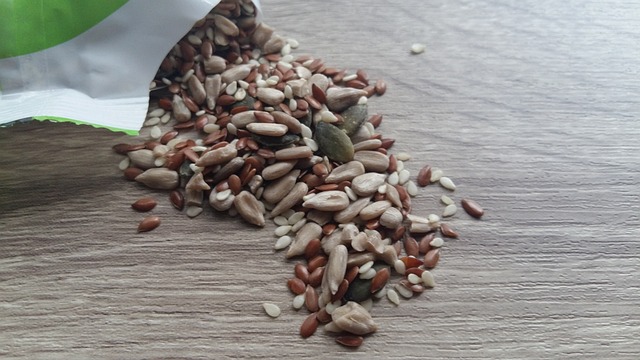Discussions surrounding detoxifying and purifying the lungs through dietary interventions and alternative methods are commonplace within health and wellness spheres. Further, seeking guidance from a qualified healthcare professional before embarking on significant dietary or lifestyle modifications is imperative. This ensures detox and cleaned lungs for personalized safety and appropriateness in addressing individual health requirements.
Food Items That Will Detox and Clean Your Lungs
It goes without saying healthy lungs are mandatory to keep your breathing mechanism on track. Lungs help one keep germs at bay, inhale freshness, and exhale the toxic air. The way you treat your lungs is very important, and out of everything, it is food that helps make a difference. Hence, moving along, here is a list of food items that will help you detox and clean your lungs.
Cruciferous Vegetables

Eat cruciferous vegetables such as broccoli, cauliflower, Brussels sprouts, and kale. These vegetables boast a remarkable blend of antioxidants and sulfur compounds known to energize lung health by facilitating detoxification processes and quelling inflammation. These culinary gems not only tantalize the taste buds but also serve as nature’s arsenal against oxidative stress and respiratory woes. Incorporating these vibrant greens into your diet can be a great step towards detoxing and cleaning your lungs.
Ginger

Ginger’s anti-inflammatory and antioxidant properties relieve asthma and bronchitis. Gingerol reduces airway inflammation, aids bronchodilation, improves circulation, acts as an expectorant, and exhibits antimicrobial effects. More research is needed to fully understand its efficacy. Consult healthcare professionals before using ginger for respiratory issues, especially with medications or underlying conditions.
Turmeric

Having turmeric is good for your health, as it detoxes and cleans your lungs. Curcumin in turmeric offers potent antioxidant and anti-inflammatory effects, protecting lung tissue and aiding detoxification. It neutralizes free radicals, reduces respiratory inflammation, and improves lung function. Curcumin’s detox properties also eliminate lung toxins, enhancing respiratory health. Its potential for mitigating respiratory conditions stands as a natural remedy.
Green Tea

Green tea, rich in catechins, uniquely reduces lung inflammation, enhances respiratory function, and shields against oxidative stress. Catechins target lung tissue, improving respiratory health by combating oxidative damage. Green tea’s distinctive catechin blend makes it a promising natural remedy for lung support.
Berries

To detox and clean your lungs, you should take berries like blueberries, strawberries, and raspberries that are rich in antioxidants—particularly anthocyanins, uniquely adept at safeguarding lung tissue from damage and bolstering detoxification processes. Anthocyanins, abundant in these berries, play a pivotal role in shielding the lungs from harm while also aiding in detoxification. This distinctive antioxidant profile underscores berries’ potential as a natural means to support lung health, although further research is necessary for comprehensive understanding.
Citrus Fruits

Oranges, lemons, and grapefruits are abundant in vitamin C, a potent antioxidant crucial for supporting lung health by diminishing inflammation and enhancing immune function. This unique attribute of vitamin C aids in fortifying the respiratory system, helping to mitigate inflammation and bolster immunity. As a result, these citrus fruits offer a distinct advantage in promoting lung health, highlighting their role as natural allies in respiratory well-being.
Pomegranate

Pomegranate contains punicalagin, potent antioxidants that uniquely safeguard lung tissue from oxidative damage and support detoxification pathways. Punicalagin’s remarkable ability to protect against oxidative stress, specifically in the lungs, contributes to its distinct role in respiratory health. By supporting detoxification pathways, pomegranate offers a unique advantage in promoting lung function and overall respiratory well-being.
Leafy Green Vegetables

Spinach, kale, and Swiss chard, rich in chlorophyll, uniquely detox and clean your lungs and aid waste elimination. Chlorophyll’s detoxifying prowess enhances lung health and overall well-being. Adding these leafy greens to the diet naturally supports respiratory function and promotes lung health.
Garlic

Garlic’s allicin compound uniquely cleanses the respiratory system, lowering the risk of lung infections with its anti-inflammatory and antimicrobial properties. Allicin’s dual action reduces inflammation and combats microbes, offering a natural defense for respiratory health. Integrating garlic into the diet provides a distinct advantage in supporting lung function and preventing respiratory infections.
Nuts And Seed

Almonds, walnuts, and flaxseeds are uniquely rich in omega-3s and antioxidants. They reduce lung inflammation and support respiratory health, aiding lung-specific inflammation and broader respiratory well-being. Adding these nuts and seeds to the diet will help you detox and clean your lungs naturally, promoting respiratory health.
In conclusion, dietary interventions and alternative methods are widespread, often advocating for various foods and practices believed to enhance respiratory health. While certain foods like cruciferous vegetables, ginger, turmeric, green tea, berries, citrus fruits, pomegranate, leafy greens, garlic, and nuts and seeds boast promising nutritional profiles that may benefit lung health, scientific evidence supporting their specific detoxifying effects on the lungs remains limited. It’s important to approach such dietary modifications with caution, considering potential risks such as nutritional deficiencies and the need for individualized guidance from healthcare professionals. While incorporating nutrient-rich foods into one’s diet can undoubtedly contribute to overall well-being. Therefore, while these foods may offer potential benefits, they should be viewed as part of a balanced diet and lifestyle rather than standalone solutions for lung detoxification.



